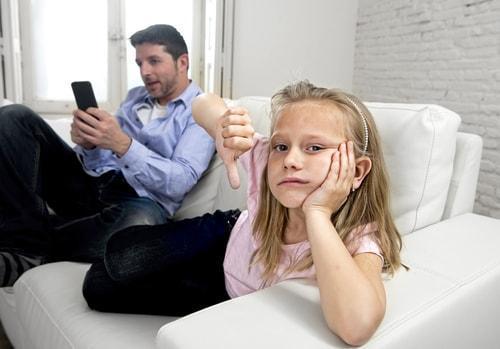Recent Blog Posts
Determining Parental Fitness in Illinois
 Generally, Illinois courts do not have any interest in taking children away from their natural parents without immediate and pressing reasons to do so. However, when a parent’s fitness is called into question, obviously, due diligence must be performed lest children remain in harmful and dangerous situations. If you have been accused of being an unfit parent, it is important for you to understand what that means so you may best defend against it.
Generally, Illinois courts do not have any interest in taking children away from their natural parents without immediate and pressing reasons to do so. However, when a parent’s fitness is called into question, obviously, due diligence must be performed lest children remain in harmful and dangerous situations. If you have been accused of being an unfit parent, it is important for you to understand what that means so you may best defend against it.
Statutory Criteria
Every state has its own definition of “unfit.” In Illinois, the guidelines can be found in the Illinois Adoption Act which sets out the criteria a judge may use to declare that a parent falls into that status. An unfit parent is defined in Illinois as someone who can objectively be found to not have the child or children’s best interests at heart. This can be shown by a lengthy list of considerations contained in the statute. Some of the more common concerns include abandonment, neglect, demonstrable cruelty toward the child, a lack of interest or responsibility, substance abuse, or addiction.
Changing Your Estate Plan to Account for Your Divorce
 People tend to forget or overlook things when they divorce. Dotting every proverbial “i” and crossing every proverbial “t” can be a difficult endeavor, especially when there are children involved. One of the most commonly overlooked issues-especially if a divorce is complex or acrimonious-is estate planning. Updating or re-drafting documents like wills and trusts can make all the difference in ensuring that your assets go to those who you have expressly chosen.
People tend to forget or overlook things when they divorce. Dotting every proverbial “i” and crossing every proverbial “t” can be a difficult endeavor, especially when there are children involved. One of the most commonly overlooked issues-especially if a divorce is complex or acrimonious-is estate planning. Updating or re-drafting documents like wills and trusts can make all the difference in ensuring that your assets go to those who you have expressly chosen.
Make a New Will or Trust
Illinois probate law can be quite complex, particularly if you are trying to modify an existing document. This is made even more confusing by the fact that Illinois law, upon divorce, revokes any gifts or positions of authority given to an ex-spouse. For example, if you named your now-former husband as the executor of your estate, that designation will be void upon your divorce. Sometimes this can be advantageous, but in certain cases, you may want to keep your ex-spouse in the will. Doing so may be beneficial in situations where young children are involved as potential beneficiaries.
What You Need to Know About the New Illinois Child Support Law

Beginning July 1, 2017, new guidelines will be put in place for the determination of child support in Illinois. Current law bases child support calculations on a set percentage of net income. For example, the child support payment for one child is 20% of the net income of the non-custodial parent. Under the new "income shares" model, the incomes of both parents will be taken into account in the calculation.
What is the "income shares" model, and how does it work?
The goal of the income shares model is to try to allocate support as if the child and parents were living in an intact household. In order to calculate the child support amount owed, the incomes of both parents will be combined to come up with a shared gross income. Based on that amount, a basic support obligation will be imposed. This obligation will be pre-determined by a schedule developed by the Department of Health & Family Services (DHFS). Each parent will then be responsible for a portion of the basic obligation prorated in proportion to each parent’s share of the combined income.
Child Abandonment in Illinois
 In most divorce proceedings, parents are encouraged to develop a workable parenting plan that outlines each party’s rights and responsibilities regarding their children. A parenting plan specifies how significant decisions regarding the child’s life will be made as well as a parenting time schedule. Your parenting time-sometimes referred to as physical custody of a child-is more than a right or a privilege; it is a responsibility. If you fail to safeguard your child or you leave them alone for too long during your scheduled parenting time, you will be deemed to have abandoned them, and you could lose your parental rights as a result.
In most divorce proceedings, parents are encouraged to develop a workable parenting plan that outlines each party’s rights and responsibilities regarding their children. A parenting plan specifies how significant decisions regarding the child’s life will be made as well as a parenting time schedule. Your parenting time-sometimes referred to as physical custody of a child-is more than a right or a privilege; it is a responsibility. If you fail to safeguard your child or you leave them alone for too long during your scheduled parenting time, you will be deemed to have abandoned them, and you could lose your parental rights as a result.
Physical Abandonment
Child abandonment is defined in Illinois as any time that someone having physical custody or control of a child under age 13 “knowingly leaves that child” without supervision, or in the supervision of someone “irresponsible” (or underaged) for 24 hours or more. It implies a negligent or reckless disregard for that child’s safety, and it is a criminal offense in Illinois, carrying a sentence that can vary between probation and three years in prison, plus a $25,000 fine. If the abandonment leads to the child being injured or otherwise harmed, the parent may lose parental rights.
Pro Se Divorce: Should You Divorce Without a Lawyer?
 Over the past decade or so, one of the more common scenarios that have emerged in family courts across the country is where one or both spouses who are going through the divorce process make the decision to represent themselves instead of hiring an attorney. This is known as a pro se divorce.
Over the past decade or so, one of the more common scenarios that have emerged in family courts across the country is where one or both spouses who are going through the divorce process make the decision to represent themselves instead of hiring an attorney. This is known as a pro se divorce.
Going Through It on Your Own
Couples who decide for forgo the guidance of an experienced divorce attorney may do so for a number of reasons, including:
- They anticipate that the divorce will be easy to settle since both spouses agree not only to ending the marriage but also how parental responsibilities, parenting time, property division, etc., should be divided;
- They feel the fees an attorney will charge will be too expensive, especially since they anticipate a “friendly” divorce; or
- They believe that they can find the resources regarding the law and the divorce process online.
Donating Your Body to Science
 Do you have a plan in place for what will happen to your body when you die? While this is not the most exciting topic to think about, it is an important consideration for you and your loved ones to make well in advance of the need. An overwhelming majority of Americans choose from one of two options: burial or cremation. Some families need the comfort that comes with being able to visit a grave or the closure of spreading a loved one’s ashes in a favorite place. There is a third option, however. You could choose to donate your body to science and provide ambitious medical students with their first patients.
Do you have a plan in place for what will happen to your body when you die? While this is not the most exciting topic to think about, it is an important consideration for you and your loved ones to make well in advance of the need. An overwhelming majority of Americans choose from one of two options: burial or cremation. Some families need the comfort that comes with being able to visit a grave or the closure of spreading a loved one’s ashes in a favorite place. There is a third option, however. You could choose to donate your body to science and provide ambitious medical students with their first patients.
Organ Donors vs. Whole Body Donors
In today’s society, there seems to be a stigma attached to the idea of donating one’s body to science or medical research, perhaps because it is simply seen as non-traditional. Burial rites play an important role in many religions, but orthodox adherence to religious customs has been on the decline for a number of years. Additionally, more than half of American adults-over 130 million people-are registered as organ donors. This means that while many individuals are willing to have their organs put to use in possibly saving another person’s life, they are significantly less willing to donate their entire bodies. Research suggests that there are fewer than 20,000 whole body donations annually in the United States.
The Dangers of Taking Divorce Too Lightly
 Most people are uncomfortable with confrontation to certain extent. While there are exceptions, you may have heard the phrase “going along to get along” used to describe the actions of a person looking to avoid a fight by placating someone else. This is a common trait among people with a so-called “easy going” personality. Going along to get along is a reasonable approach for most situations in life-deciding where to have dinner, for example, is not worth fighting about. When it comes to divorce, however, being afraid of making waves could leave you at a serious disadvantage, possibly for the rest of your life.
Most people are uncomfortable with confrontation to certain extent. While there are exceptions, you may have heard the phrase “going along to get along” used to describe the actions of a person looking to avoid a fight by placating someone else. This is a common trait among people with a so-called “easy going” personality. Going along to get along is a reasonable approach for most situations in life-deciding where to have dinner, for example, is not worth fighting about. When it comes to divorce, however, being afraid of making waves could leave you at a serious disadvantage, possibly for the rest of your life.
Divorce Is Not Easy But It Is Worth the Effort
Nobody will try to tell you that a divorce is a simple undertaking. Just making a list of the issues that must be addressed can be overwhelming, not to mention actually addressing them. Despite the complications that may arise, the reality of a divorce is rather straightforward: if you do not advocate for yourself, nobody else will do it for you. If you think you are entitled to spousal support from your spouse, ask for it. If you want primary parental responsibilities regarding your children, develop your ideal parenting plan and present it to the court.
Give Your Family a Voice Not a Vote Regarding Your Estate Plan
 Unless you are one of those rare, fortunate individuals who inherited a great deal of wealth or hit the Powerball jackpot, you have most likely worked very to accumulate the property and assets that comprise your estate. You have put in the hours, made intelligent financial decisions, and were generally careful when making purchases both large and small. When it comes time to decide what will happen to your estate after your death, it is your right to make such decisions as you see fit.
Unless you are one of those rare, fortunate individuals who inherited a great deal of wealth or hit the Powerball jackpot, you have most likely worked very to accumulate the property and assets that comprise your estate. You have put in the hours, made intelligent financial decisions, and were generally careful when making purchases both large and small. When it comes time to decide what will happen to your estate after your death, it is your right to make such decisions as you see fit.
It is important to understand, however, that while you have the right to make estate planning decisions completely on your own, doing so could lead to problems down the road. For this reason, estate planning experts and legal professionals recommend discussing your intentions with family members and loved ones before finalizing your estate plan.
Preventing Misunderstandings
A recent study conducted by Fidelity Investments found that parents and their adult children often feel disconnected regarding the parents’ estates and plans for the future. For example, children underestimate the value of their parent’s property and assets by nearly $280,000 on average. The survey also found that nine out of ten parents assume that one of their children will take on the role of executor of the estate, but more than one in four appointed children were not aware of their parent’s expectations.
Keeping Divorce Stress Under Control
 Anybody who says that his or her divorce was easy either is misremembering the situation or is not telling the whole truth. Virtually every divorce will have its share of challenges as the process represents not on the end of a relationship between two people but also the dissolution of the marital contract. Along the way, most people who go through a divorce experience a number of challenges and difficulties often accompanied by a great deal of stress and anxiety. Fortunately, there are some things you can do to limit the negative feelings and to focus on a happier, healthier future.
Anybody who says that his or her divorce was easy either is misremembering the situation or is not telling the whole truth. Virtually every divorce will have its share of challenges as the process represents not on the end of a relationship between two people but also the dissolution of the marital contract. Along the way, most people who go through a divorce experience a number of challenges and difficulties often accompanied by a great deal of stress and anxiety. Fortunately, there are some things you can do to limit the negative feelings and to focus on a happier, healthier future.
Commit to Cooperate
As you and your spouse approach your impending divorce, you have two basic options. You could choose to dig in and fight over every element-including the division of property, parenting plans, and alimony-or you could try to work things out amicably. It is important to realize, however, that negotiated, amicable divorce does not just happen. Instead, it requires a commitment from both spouses and concerted effort throughout the process.
Estate Planning Can Promote Family Unity
 If you were to ask your family members-including your spouse, children, grandchildren, or anyone else you wish to include-how your property should be distributed when you die, you would probably get a wide variety of responses. Some are likely to suggest that you divide your estate equally, though there are likely to be many versions of what “equal” means. Other family members may simply remind you that you have the right to make the decisions as you see fit.
If you were to ask your family members-including your spouse, children, grandchildren, or anyone else you wish to include-how your property should be distributed when you die, you would probably get a wide variety of responses. Some are likely to suggest that you divide your estate equally, though there are likely to be many versions of what “equal” means. Other family members may simply remind you that you have the right to make the decisions as you see fit.
Human emotion, however, is often unpredictable. Thus, the same people who tell you to do what you think is best may very well be the same ones who get upset when they find out that their inheritance is less than they expected to be. While you cannot control how your family will behave after your death, you can take steps to prepare them for that reality well in advance.
Decide What Is Important
You absolutely do have the right to do whatever you wish with your estate. It is also important, however, to think about how your choices could affect your loved ones and family members down the road. You may not really care very much if family members are hurt or feel slighted by your choices; after all, you will not be around to witness it. That is also your right.












